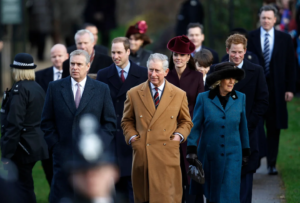The DOJ spokesperson reaffirmed the agency’s resolve to pursue legal action against individuals involved in criminal activity in connection with Antifa. This does not restrict scope to mere physical perpetrators of the violent or destructive acts, but also to those who are alleged to fund, equip, or otherwise enable such activity.
“The Department will track down anyone involved in Antifa’s criminal activity—whether that’s out committing violence on the street or in their home providing resources and support,” the spokesman said.

But President Donald Trump’s new orders to fight domestic political violence have sown confusion within federal agencies. Lawyers within the Department of Homeland Security (DHS) are reported to be scrambling to determine how to implement these orders without violating constitutional or statutory limits, two DHS officials said on condition of anonymity because public comment was limited.
Legal and Operational Challenges
DHS spokesperson Tricia McLaughlin claimed that the agency is “fully and faithfully” implementing the President’s directives. However, legal commentators have noted that there is presently no provision under American law to formally designate a domestic organization—specifically one that does not have foreign links—as a terrorist group. In contrast to international terror groups, which could be formally designated under the State Department’s auspices, domestic organizations are protected by First Amendment protections, which renders such designation legally and politically complex.
One DHS official said the department’s capacity to monitor and investigate domestic extremism has been undercut in recent years. As part of Trump’s attempt to reduce the size of the federal government, huge numbers of intelligence analysts who used to work on domestic terrorism took buyouts or early retirement, creating enormous knowledge holes and investigative capability.
ICE Shifts Focus to Domestic Threats
Despite these challenges, Immigration and Customs Enforcement (ICE) has begun diverting some resources to domestic terrorism investigations. Two senior ICE officials said that investigative agents have been instructed in recent weeks to prioritize highest threats related to domestic extremism. One official characterized the shift as one facet of a wider federal law enforcement reorientation, aimed at addressing increased concern over homegrown political violence.
Political Undertones and Civil Liberties Concerns
Trump administration’s aggressive stance against domestic political opposition occurs within the broader context of escalating conflict between the federal government and institutions perceived as oppositional. Trump has repeatedly accused large law firms, universities, and news media of bias or complicity in what he describes as radical left agendas. Additionally, deployment of National Guard troops to several Democratic-governed cities has fueled further suspicions about militarization of political contestation.
Democratic lawmakers and civil rights organizations argue that the administration’s tactic is more about frightening dissent and punishing political adversaries than about safeguarding public safety. They warn that singling out donors and ideological supporters of protest movements would have a chilling effect on free speech and legal assembly.
Presidential historian Timothy Naftali drew a comparison between Trump and President Richard Nixon, pointing out that both of them desired to muzzle critics and reprimand challengers. Naftali argued, however, that Trump was able to go further due to an obsequious, Republican-controlled Congress and a Cabinet composed of sycophants who were unwilling to stand up to him.
“This is why the present-day situation threatens the rule of law more than in the time of Watergate,” Naftali explained. “Institutional checks that contained Nixon’s excesses are mostly not there now.




